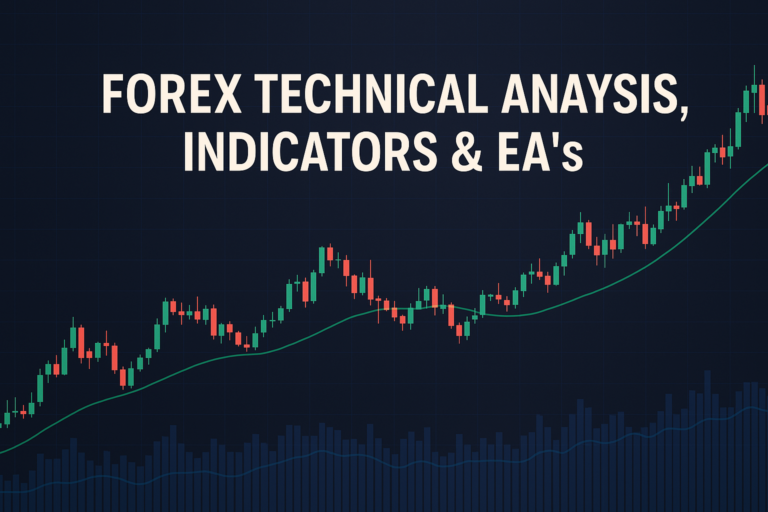
Brokers suspending accounts without prior notice can disrupt your trading journey. Learn how to navigate this issue effectively!
In the world of Forex trading, one of the most unsettling experiences a trader can face is when brokers suspend accounts without prior notice. This sudden halt can leave traders feeling anxious and confused, leading to potential losses and frustration. Whether you are a beginner trying to navigate the complexities of the market or a seasoned professional, understanding this issue is crucial for your trading success.
Many traders struggle with account suspensions due to a lack of clear communication from brokers. This situation can arise unexpectedly, putting your investments at risk. It’s essential to grasp the reasons behind such suspensions to avoid future occurrences. By understanding this challenge and implementing effective strategies, you can protect your trading journey and make informed decisions.
Understanding the Problem
When we talk about brokers suspending accounts without prior notice, we are referring to a situation where a trading account is unexpectedly put on hold by the broker. This can happen for various reasons, including technical glitches, market volatility, or compliance issues. For instance, if a trader executes a high number of trades within a short time, brokers may flag the account for suspicious activity.
Imagine a trader named Alex who is actively buying and selling currencies. One day, while trying to close a profitable position, he finds his account suspended. This situation can arise from a broker’s internal risk management system that detects unusual trading patterns. Such incidents can be frustrating and detrimental to a trader’s financial health, making it essential to understand the nuances of account suspensions.
Solutions for Brokers Suspending Accounts Without Prior Notice
To tackle the issue of brokers suspending accounts without prior notice, here are some effective solutions:
1. Understand Broker Policies
Familiarize yourself with your broker’s policies regarding account management. Each broker has specific rules for account activity, trading volume, and risk management. Knowing these policies can help you stay compliant and avoid account suspensions.
2. Maintain Open Communication
Keep an open line of communication with your broker. If you sense any issues or unusual account activity, reach out to customer support. A quick inquiry can clarify doubts and prevent unnecessary suspensions.
3. Monitor Your Trading Activity
Be cautious about your trading patterns. Avoid excessive trading or using high leverage, as these can trigger account suspensions. For example, if you notice your account is flagged after a series of rapid trades, consider adjusting your strategy.
4. Keep Your Documentation Updated
Ensure that your identification and financial documents are up-to-date. Brokers may suspend accounts if they need to verify your identity or if there are discrepancies in your information.
5. Use Risk Management Tools
Employ risk management tools offered by your broker. These tools help you manage your exposure and can prevent situations that might lead to account flags.
6. Stay Informed About Market Conditions
Be aware of market conditions that might affect your trading. For instance, during high volatility periods, brokers might tighten their risk parameters, leading to more account suspensions.
7. Pro Tips for Advanced Traders
For seasoned traders, consider diversifying your trading strategies and using multiple brokerage accounts. This way, if one account is suspended, you have others to rely on.
Frequently Asked Questions
How do I detect this issue in real-time?
To detect potential account suspensions in real-time, monitor your trading platform closely. Look for notifications from your broker and set alerts for unusual account activity. For example, if you suddenly cannot access your account or receive warnings about your trading patterns, it may indicate a problem.
Can brokers legally do this?
Yes, brokers can legally suspend accounts without prior notice, especially if they believe the account is violating terms or poses a risk. However, they are typically required to provide a valid reason for the suspension when requested.
What tools can I use to prevent this?
Utilize risk management tools like stop-loss orders and trader alerts to mitigate risks. Additionally, some platforms offer account monitoring tools that notify you of suspicious activity automatically.
Is this problem more common in specific market conditions?
Yes, account suspensions tend to occur more frequently during periods of high volatility or significant market events. For example, during major economic announcements, trading activity spikes, which may trigger broker risk management systems.
What should I do if my account is suspended?
If your account is suspended, the first step is to contact your broker’s support team. Ask for clarification on why the suspension occurred and what steps you need to take to resolve the issue. It’s important to remain calm and professional during this process.
Can I get my funds back after a suspension?
Typically, you can retrieve your funds after resolving the issue that led to the suspension. However, this process can vary depending on the broker’s policies and the nature of the suspension.
Conclusion
In summary, brokers suspending accounts without prior notice can be a daunting experience for traders. However, by understanding the reasons behind these suspensions and implementing effective strategies, you can navigate this challenge successfully. Stay informed, communicate with your broker, and develop sound trading practices to protect your investments.
Trading can be unpredictable, but with the right knowledge and strategies, you can minimize risks and enhance your trading experience. Stay proactive and informed!
Recommended Next Steps
To further enhance your understanding of the Forex market and reduce the chances of facing account suspensions, consider the following steps:
- Research different brokers and their policies regarding account management.
- Engage in online trading forums to learn from other traders’ experiences.
- Consider taking Forex trading courses to deepen your knowledge.
- Regularly review your trading strategies and adapt to market changes.
For more insights into Forex trading, check out Forex.com and Investopedia.
Expand Your Knowledge
- 📌 Forex Trading Learning Road Map
- 📌 Forex Trading Course with no Fees
- 📌 Forex Trading Issues, Problems, and Solutions
- 📌 Forex Daily Forecast & Live Updates
- 📌 Forex Fundamental & News Analysis: Tomorrow’s Market Movers & Trade Opportunities
- 📌 Forex Education Hub: Learn & Profit
- 📌 Forex Technical Analysis, Indicators & EA’s
Start Trading Today
Ready to take your forex trading to the next level? Open an account with Exness, one of the most trusted platforms in the industry. 👉 Sign Up Now and start trading with confidence!
Exness stands out with ultra-low spreads for mini traders, instant withdrawals, and zero spread accounts for pro traders. Trusted since 2008, Exness offers lightning-fast execution, no hidden fees, and a secure, transparent trading environment—giving you the edge you need to succeed. 🚀 Join now and trade smarter!
Watch this helpful video to better understand Brokers suspending accounts without prior notice:
Note: The video above is embedded from YouTube and is the property of its original creator. We do not own or take responsibility for the content or opinions expressed in the video.
The South African Financial Sector Conduct Authority (FSCA) has provisionally suspended the license of JP Markets SA (Pty) Ltd, a forex broker that has been operating since 2016. This suspension comes after the regulator received numerous complaints from clients regarding difficulties in withdrawing their funds. Many customers have reported issues with getting their deposits back, leading to growing concerns about the broker’s reliability and trustworthiness. The FSCA’s decision to suspend JP Markets’ Financial Services Provider (FSP) license is a significant move aimed at protecting consumers in the financial market. The action reflects the increasing scrutiny that financial institutions are under, especially those dealing with forex trading, where the risk of fraud and mismanagement can be high.
JP Markets has been a notable player in South Africa’s forex trading scene, attracting a wide customer base with its offerings. However, the recent problems with withdrawals have tarnished its reputation and raised questions about its operations. Clients who were once drawn to the broker for its services are now left feeling frustrated and uncertain about their investments. The FSCA’s intervention highlights the importance of regulatory oversight in the financial sector, particularly for companies dealing with client funds. This situation serves as a reminder for traders to thoroughly research brokers before engaging in transactions, as the potential for issues like delayed withdrawals can lead to significant financial distress. As the FSCA investigates further, clients and potential investors will be keenly watching for updates regarding the future of JP Markets and the status of their funds.





